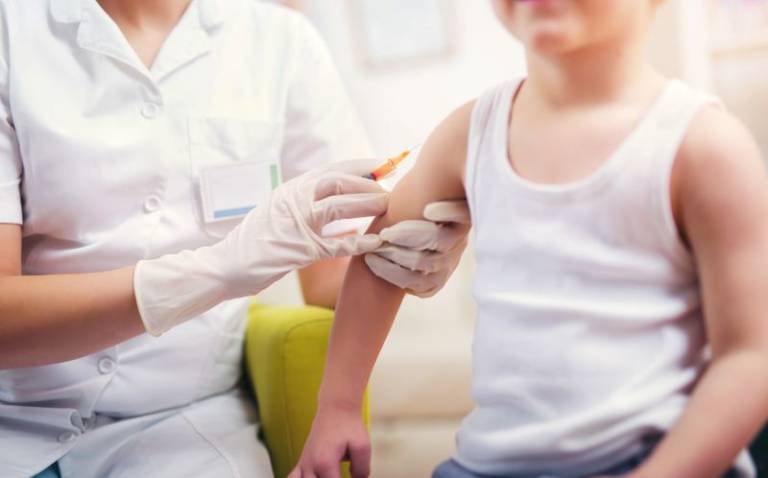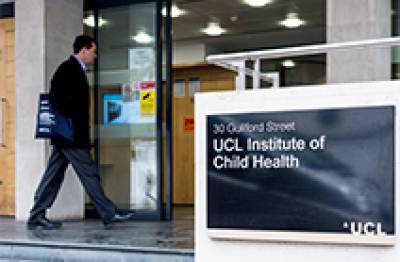Children receiving care and support in Wales more likely to be immunised
24 August 2023
Children receiving services under a care and support plan had higher overall vaccination rates and were more up to date with immunisations than the general population of children in Wales, finds a new study involving UCL researchers.

The research, published in Frontiers in Public Health, is the first data linkage study to explore vaccination coverage in children under social care services in Wales.
The UK has a robust childhood immunisation programme that ensures children are offered protection against serious infection. However, identifying inequalities in vaccination coverage is essential.
The team explored coverage of primary, as well as preschool boosters and second doses of MMR vaccines.
Professor Helen Bedford (UCL Great Ormond Street Institute of Child Health) said: “Historically, vaccine uptake among disadvantaged groups of children – particularly those in the care of the local authority – has been poorer than that of other children, leaving them vulnerable to potentially serious infections.
“The results of this research are therefore very encouraging and hopefully can be built on to improve the health of looked after children more widely.”
The analysis included records from the Children Receiving Care and Support (CRCS) Census and the National Community Child Health Database, which contains vaccination records for all children in Wales registered for NHS care.
Researchers analysed data from the Secure Anonymised Information Linkage (SAIL) Databank and examined the immunisation status of children living in Wales between April 2016 and March 2021.
The key findings were:
- Children receiving care or support were less likely to have missing vaccines than those within the population comparison group.
- Children receiving care or support were more likely to be up to date with all six vaccines compared to children in the comparison group.
- Both early and delayed vaccinations were more common in children receiving care or support.
- Immunisation flags - shown on a person’s health record to indicate whether they are considered up to date with their vaccinations - were only accurate for around 70% of children. This is particularly important as inaccurate immunisation flags can lead to vaccinations being missed for certain diseases, leaving children vulnerable to preventable infections.
Lead author Grace Bailey (Swansea University) said: “Our study reveals that looked after children in Wales are more likely to be up to date with immunisations than the general child population.
“Early and delayed vaccinations were common – demonstrating that more interdisciplinary coordination and planning are needed to improve outcomes.
“This work provides vital insights that can inform targeted interventions and help prioritise efforts in areas that need catch-up programmes.”
Co-author Professor Sally Holland (University of Cardiff) said: “Our findings suggest that social services and health colleagues’ efforts to support children who have faced more challenges than the general population are paying dividends when it comes to immunisation.
“Immunisation programmes are a key intervention for improving population health. Our research can inform and contribute to ongoing efforts to improve immunisation programmes across Wales, ensuring that all children, regardless of social care status, receive timely and comprehensive protection against serious infections.”
The study, funded by CASCADE, was a collaboration between researchers at UCL, Population Data Science at Swansea University, Public Health Wales, and the Children’s Social Care Research and Development Centre, Cardiff University.
Links
- Source: Swansea University
- Research in Frontiers in Public Health
- Professor Helen Bedford’s academic profile
- UCL Great Ormond Street Institute of Child Health
- UCL Population Health Sciences
Image
- Credit: Jovanmandic on iStock
Media contact
Poppy Danby
E: p.danby [at] ucl.ac.uk
 Close
Close


